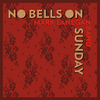
Black Rebel Motorcycle Club

Bio
For 15 years, Black Rebel Motorcycle Club has carried the torch for true rock and roll. The latest edition of the firebrand rock troupe, sees them at their most dynamic. Their sixth album, Specter At The Feast, ventures into diverse sonic territory, delivering their most ambitious offering yet. It’s an album of impossible dichotomies; opposing sounds amalgamate into a seamless, entirely coherent package, that rumbles with driving rhythms, and soars with skyward-arcing guitar howls. Robert Been delivers growling bass grooves on “Hate the Taste,” and Peter Hayes’ guitar wails on what may be their most hard-rocking song, “Rival.” Counterbalancing these frenetic outbursts are moments of star-gazing ambient textures, like the crystalline harmonics introducing the slinking album opener, “Fire Walker,” and the organ drones of “Returning.” There are moments of down-home blues paired alongside flailing punk bombasticism; gnarled dark rock shores upon uplifting, and optimistic anthems. Taking cues from all points of the band’s many years on the road, this record is the band’s most well-realized album to date. “We thought about making it a double album,” Been says of the many songs that were written for the record.
To write the album, the Los Angeles band traveled north to the sleepy Northern California town of Santa Cruz, where they holed up in an old Post Office-turned-recording studio. It was here, just a few blocks from where Been grew up, that they began to write.
“Peter would spend all day and night in that studio,” Been recalls, “[Drummer] Leah [Shapiro] and I would go and check on him every few days, and he’d show us these incredible textures and guitar lines that he built.”
“I’ve never seen the sunrise so many times,” Hayes laughs, “I’d work all night on these songs, trying to get them right.”
Prior to heading north to Santa Cruz, Dave Grohl invited them to his Studio 606, home to the storied Neve 8028 console soundboard from the legendary Sound City — the subject of his recent documentary — and where Nirvana created Nevermind and BMRC recorded their debut album in 2001. “It was a nice sense return,” Been says, “to come back to the place where it all began for us.”
For two years, the band worked on creating the album, a process that they all agree, was one of the most difficult of their career. Like the Macbeth quote that became the album’s title, there was a painful shadow that had been cast upon the band.
During the band’s 2010 tour, Robert’s father Michael Been — known for fronting 1980’s alt-rock group, The Call — died while backstage. He was BRMC’s sound engineer and as Hayes says, “he was like another member of the band.” They finished the tour but afterward, the trauma began to set in.
“Music began as the best way to escape what was out there, all the shit in the world that feels false, everything you want to say against it,” Been says, “but when a loss like this is so close to music, it turns everything upside down. Music becomes the one place where you can’t escape. It’s like waking up in a completely different world. How do I get my bearings in this world?”
Slowly, the band began to rebuild. They fought grief and the pain of Michael’s death by confronting it directly, with no fear.
“The only thing that felt good was just getting together, plugging in, and turning up loud as shit,” Been says. “It was kind of this therapeutic process, playing really loud, and just feeling this energy; letting that be a release. It really helped us pull out of that darkest place that we were in.”
As their momentum regained, their synergy reconnected them to one another. Then one session began the process that unlocked their creative energy again. “I began playing this drumbeat that I had been working on,” Shapiro says, “the guys started playing, and suddenly we realized that we were playing the Call’s ‘Let the Day Begin.’”
The unintentional homage to The Call turned into their own high-powered take on the song they performed with Michael around the world. The energy was explosive and real; it became the first song they recorded at Grohl’s studio, as a tribute to Michael’s place in the band. For Robert, of course, the meaning transcended music. “This song was one of my earliest memories of my father’s music,” he says.
Grief transformed to joy. On this album, where they dug deeper than ever before, mining these difficult emotional landscapes, the result is intense, but rapturous. From personal and intimate hymns like the “Sometimes the Light” to the buzz-saw guitars of “Teenage Disease,” Been says “it was these two extremes that we were drifting back and forth between, you feel both when you are going through what we went through.”
Above all, Specter At The Feast is honest; it tells the story of a journey to Hell and back, revealing that in darkness, there can be light. Wounds will eventually heal, and maybe, music can save your life. As they sing on “Returning,” “I will follow you ‘til we all return, ‘til we know our souls survived.”
Line-Up
- Leah Shapiro Drums
- Peter Hayes Guitar / Vocals
- Robert Levon Been Bass / Vocals












